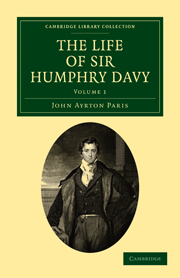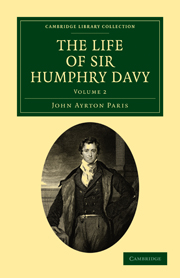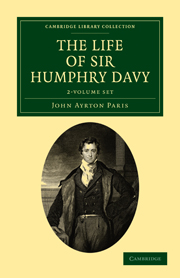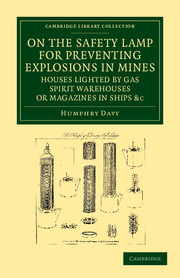The Life of Sir Humphry Davy
Sir Humphry Davy (1778–1829) was a hugely influential chemist, inventor, and public lecturer who is recognised as one of the first professional scientists. He was apprenticed to an apothecary in 1795, which formed his introduction to chemical experiments. A chance meeting with Davis Giddy in 1798 introduced Davy into the wider scientific community, and in 1800 he was invited to a post at the Royal Institution, where he lectured to great acclaim. These volumes, first published in 1831, contain Davy's official biography. Researched and written by John Ayrton Paris, the work describes in detail Davy's life and his scientific studies. Organised chronologically with excerpts from his private correspondence, Davy's early life and his experiments and lectures at the Royal Institution and his Presidency of the Royal Society between 1820 and 1827 are explored in vivid detail. Volume 1 describes his life and work until 1812.
Product details
June 2011Paperback
9781108073189
446 pages
216 × 140 × 25 mm
0.56kg
2 b/w illus.
Available
Table of Contents
- Preface
- 1. Birth and family of Sir H. Davy
- 2. Cursory thoughts on the advantage of biography
- 3. Count Rumford negotiates with Mr. Underwood on the subject of Davy's appointment to the Royal Institution
- 4. Davy makes a tour with Mr. Purkis through Wales
- 5. Sir Thomas Bernard allots Davy a piece of ground for agricultural experiments
- 6. The history of galvanism divided into six grand epochs
- 7. The unfair rivalry of philosophers
- 8. Davy's Bakerian Lecture of 1808
- 9. Davy's 'Elements of Chemical Philosophy' examined.







